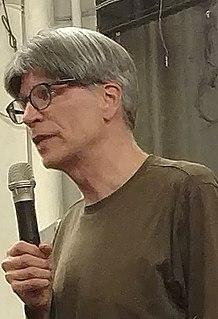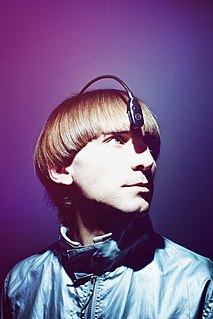A Quote by Huston Smith
Science is empirical, all about physical senses that tell us about the world. But physical senses are not the only senses we have. Nobody has ever seen a thought. Nobody has ever seen a feeling. And yet thoughts and feelings are where we live our lives most immediately, and science cannot connect with that.
Related Quotes
It is not possible to provide evidence of life after death to the five senses anymore than it is possible to provide the five senses with evidence of non-physical reality. It cannot be done. The five senses; sight,hearing, taste and smell together form a single sensory system whose object of detection is physical reality. This cannot detect non-physical reality. Humankind is beginning to be able to access data the 5 senses cannot provide.
In the new alchemy, we have a similar kind of way of thinking. Our internal space includes our intuitions, our thoughts, our senses and our feelings, and from these we construct or build a picture of the outside world. From intuition and thought, we construct time. We also construct space from thought and our sensations. From our senses and our feelings, we experience energy, and from our intuitions and our feelings, we experience motion.
As thinkers, mankind has ever divided into two sects, Materialists and Idealists; the first class founding on experience, the second on consciousness; the first class beginning to think from the data of the senses, the second class perceive that the senses are not final and say, The senses give us representations of things, but what are the things themselves, they cannot tell. The materialist insists on facts, on history, on the force of circumstances and the animal wants of man; the idealists on the power of Thought and Will, on inspiration, on miracle, on individual culture.
If spiritual science is to do the same for spirit that natural science has done for nature, it must investigate quite differently from the latter. It must find ways and means of penetrating into the sphere of the spiritual, a domain which cannot be perceived with outer physical senses nor apprehended with the intellect which is bound to the brain.
All men naturally desire knowledge. An indication of this is our esteem for the senses; for apart from their use we esteem them for their own sake, and most of all the sense of sight. Not only with a view to action, but even when no action is contemplated, we prefer sight, generally speaking, to all the other senses. The reason of this is that of all the senses sight best helps us to know things, and reveals many distinctions.







































